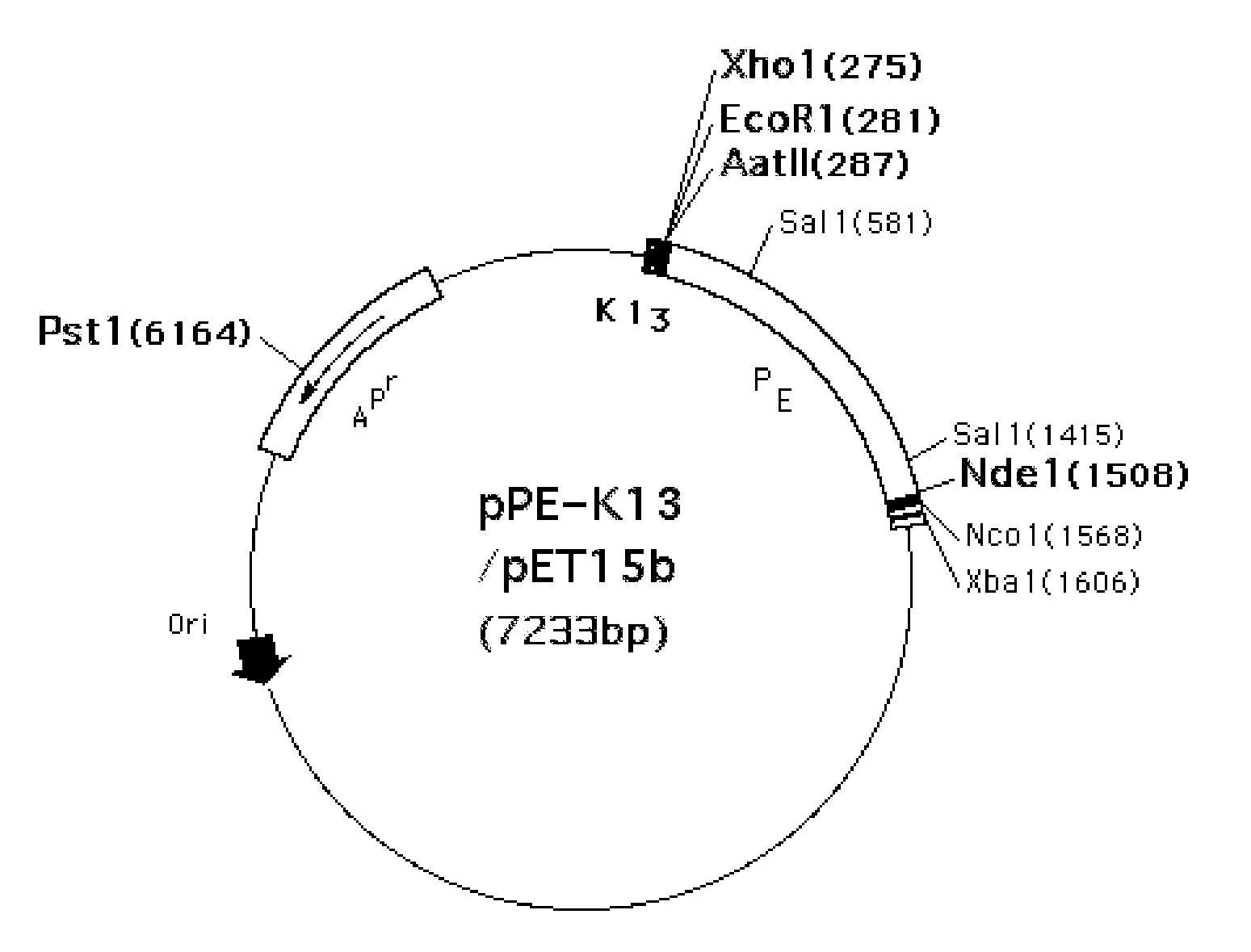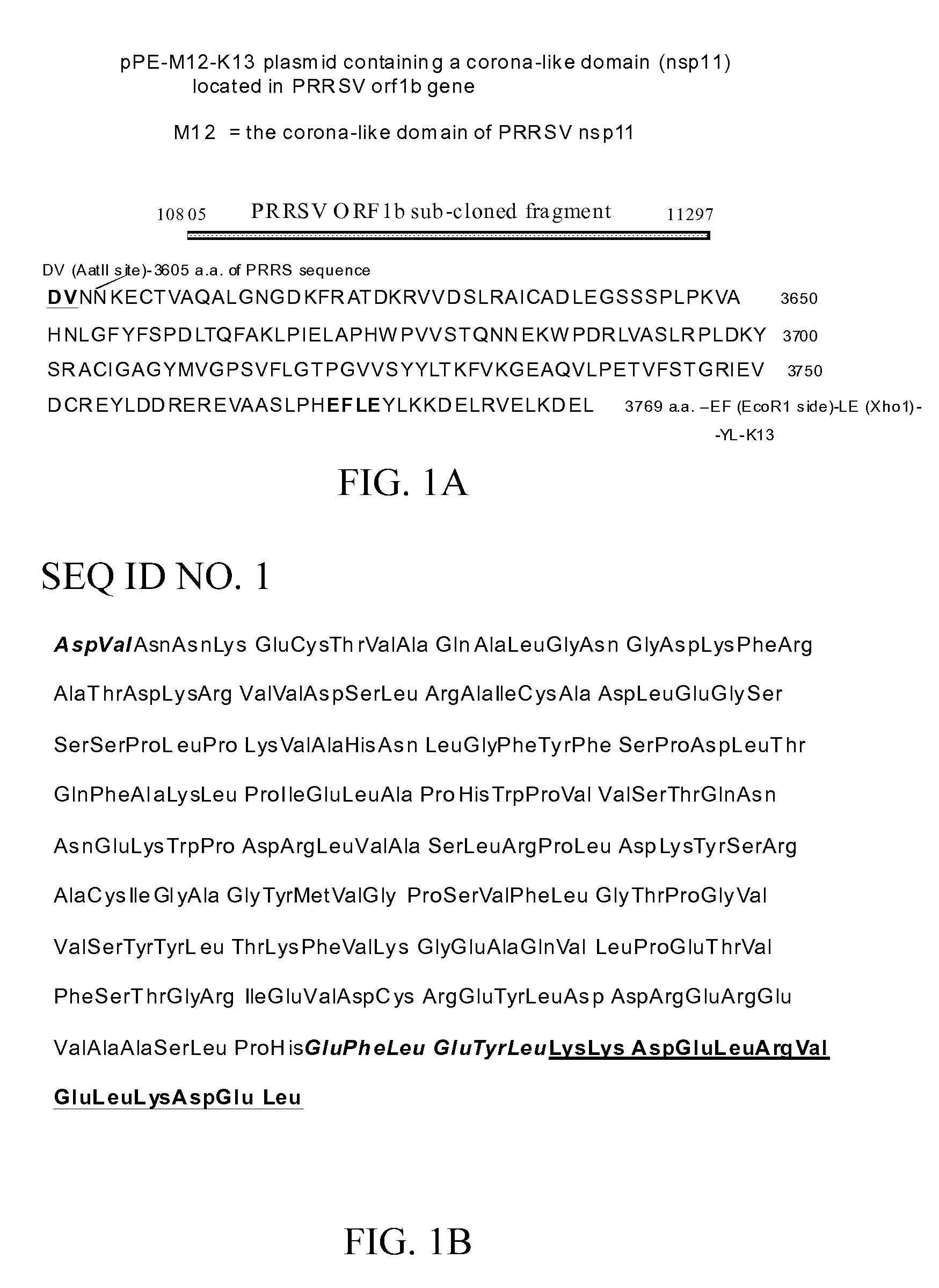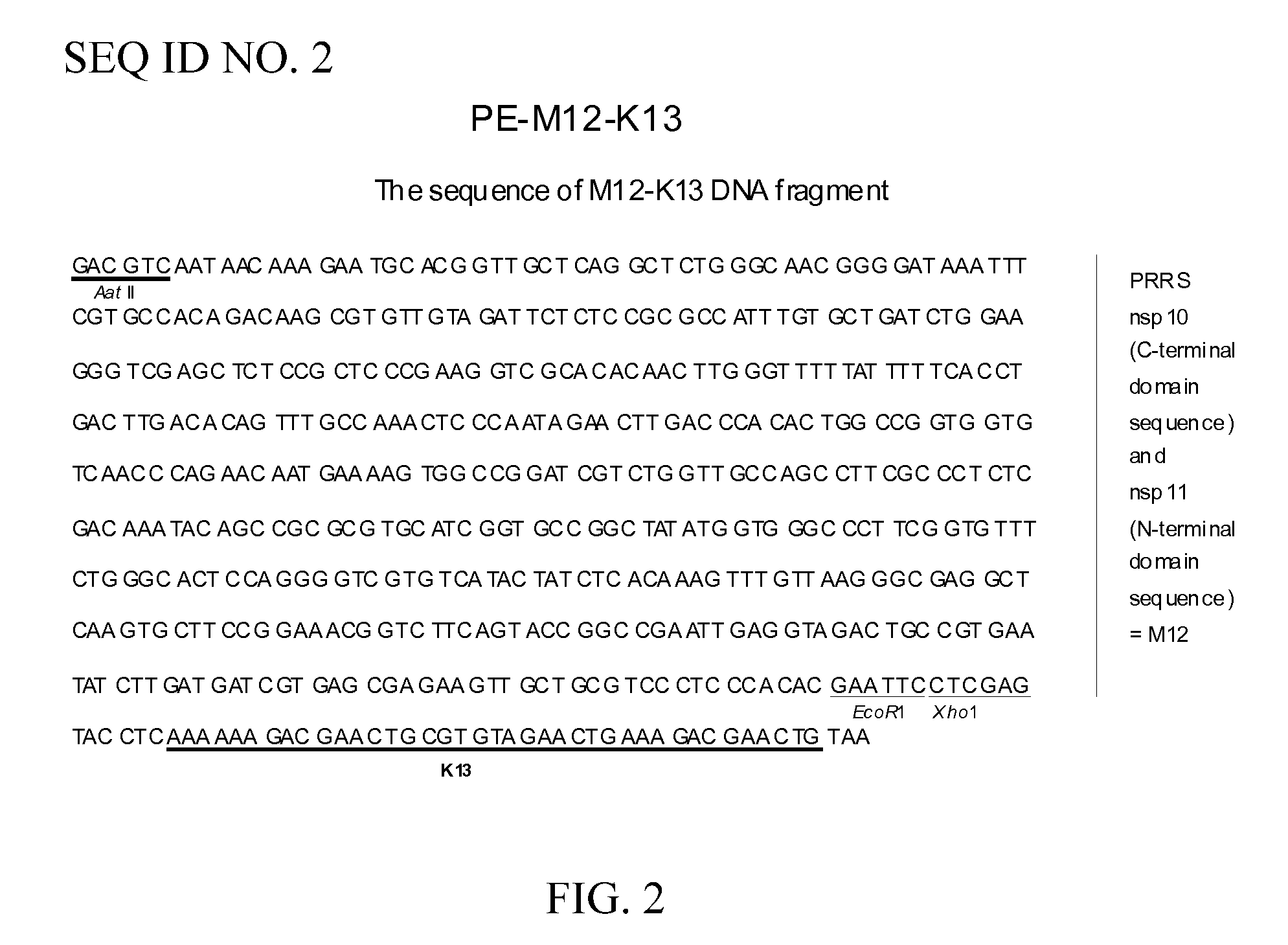Fusion antigen used as vaccine
a technology of fusion antigen and vaccine, which is applied in the field of fusion antigen used as a vaccine, can solve the problems of time-consuming and labor-intensive work to develop a live attenuated vaccine, the safety of such vector vaccines is again challenged, and the tendency of attenuated vaccines to recover toxicity and virulen
- Summary
- Abstract
- Description
- Claims
- Application Information
AI Technical Summary
Benefits of technology
Problems solved by technology
Method used
Image
Examples
example 1
Induction of Cell Mediated Immune Responses by PRRSVFusion Antigen
[0121]The focus of the invention was to discover those antigenic or epitopic regions in the PRRS virus proteins which have the characteristics of inducing a cell-mediated immune response in animals, and utilize those antigens to generate fusion antigens as vaccines for immunizing animals to induce the immune system to produce an enough quantity of IFNγ and TNFα, and activate T cell immunity and cytotoxic T cell pathway. The fusion antigens PE-DgD-K13 (or PE-PRRSV ORF7) and PE-M12-K13 were found capable of inducing cell mediated immune mechanisms. In the immunized mouse experimental model, the spleen cells were found to have induced cell immune mechanisms by PE-DgD-K13 and / or PE-M12-K13. Mice immunized with PE-M12-K13 and PE-DgD-K13, respectively, had increased secretions of IFNγ and TNFα compared with those of the control groups. The fusion antigen PE-PQGAB-K13, which comprised of ORF5 and ORF6 N-terminus-K13, had lit...
example 2
Dosages of PRRS Fusion Antigens
[0124]One milligram of antigen(s) was administered to piglets at the age of one, two, or 5 weeks, with a total of 3 times of immunization. Two weeks after the last immunization, specific antibodies IgG, IgA, and IgM titers were measured. It was found that the antibody titer could reach a peak after twice immunizations. The antibody titer after three times immunizations did not show much difference from that of twice immunizations.
[0125]When piglets were given 0.05-0.5 mg, but preferred in 0.1-0.3 mg, of a vaccine composition comprising a fusion antigen PE-M12-K13, a sufficient antibody reaction was induced after the second time immunization, and the antibody reached a peak after the third time immunization.
example 3
Protection Against PRRS Virus Challenge by Vaccine Composition in a Mixture Formulation of PE-M12-K13 and Other Fusion Antigen(s)
[0126]Animals. Pigs were obtained from a herd in the SPF farm that was periodically tested for PRRSV and known to be free of the virus by RT-PCR. Before the experiments, the SPF farm sows were confirmed free of viremia. In addition, an Index-RRRS diagnostic reagent test also showed negative results in the SPF sows.
[0127]RNA Extraction. To detect the presence of PRRSV in animals, blood plasma fractions were collected and RNAs extracted with a NUCLEOSPIN RNA II™ kit for RT-PCR. (Macherey-Nagel GmbH & Co. KG, Germany). Briefly, three hundred and fifty microliters of RA1 solution and 3.5 μl of β-mercapto-ethanol were added into 100 μl of plasma fraction. After the viscosity was reduced and the lysate cleared by filtration, the lysate was mixed with 350 μl of 70% ethanol. The RNA was adsorpted into a Nucleospin™ RNA column by centrifugation and followed by wash...
PUM
| Property | Measurement | Unit |
|---|---|---|
| pharmaceutical composition | aaaaa | aaaaa |
| time | aaaaa | aaaaa |
| affinities | aaaaa | aaaaa |
Abstract
Description
Claims
Application Information
 Login to View More
Login to View More - R&D
- Intellectual Property
- Life Sciences
- Materials
- Tech Scout
- Unparalleled Data Quality
- Higher Quality Content
- 60% Fewer Hallucinations
Browse by: Latest US Patents, China's latest patents, Technical Efficacy Thesaurus, Application Domain, Technology Topic, Popular Technical Reports.
© 2025 PatSnap. All rights reserved.Legal|Privacy policy|Modern Slavery Act Transparency Statement|Sitemap|About US| Contact US: help@patsnap.com



